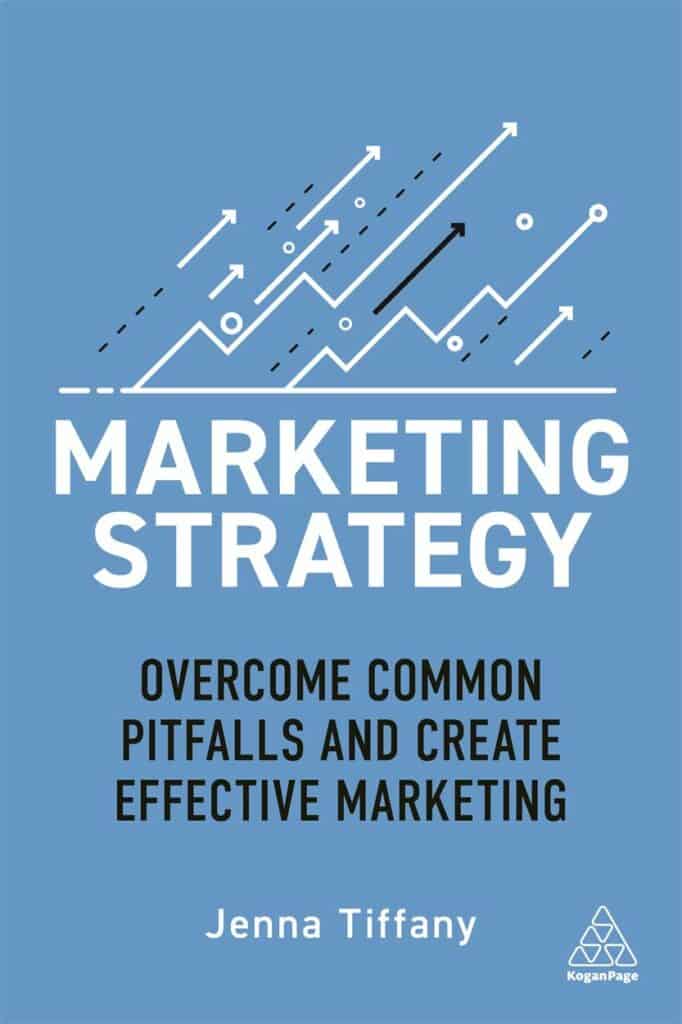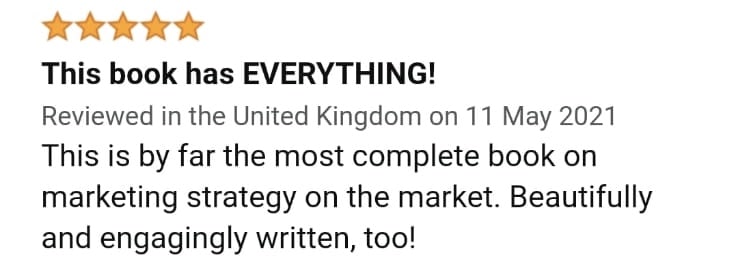The R in the STRATEGY Framework stands for Reach. Here’s why Reach is one of (if not the!) most important factors in your entire campaign.

“Listen. Take every opportunity to do so.”
That’s the advice of Tim Bond, Head of Insight at the Data & Marketing Association. He’s talking about one of the most important letters in the STRATEGY acronym: R for Reach. To fully Reach your audience, you must learn to listen to them.
Your Reach refers to the people that your campaign will – well, reach. The chapter on Reach in my new book, Marketing Strategy, is one of the largest, because this is a huge topic and I wanted to give my readers everything there is to know about it.
For example, my Reach chapter covers:
- A brief history of brand/customer relations
- Understanding your audience’s needs
- How to gain customer insights through data
- Ethical data use
- How to get audiences to enthusiastically participate in your research
- Different types of market research (and how to go about them)
- How to segment and target your audience
- How to position your brand for maximum impact
- Lead scoring
- Tailoring your marketing
- Building a competitive advantage
…and more! All laid out in an engaging, easy-to-understand manner.
It also includes an interview with Tim Bond, Head of Insight at the DMA, from which the quote at the beginning of this article was taken.
For a taster, here’s my Reach chapter’s section on the 4Ps – factors that help to position your campaign for maximum Reach:

“Price – The psychology of pricing in marketing is something that can make or break a product. You’ll have seen the use of 99p/ 99cents instead of £1/1 euro/ 1 dollar. The psychology behind this particular pricing method is that the item appears a lot cheaper – even though it is only by 1 penny/cent.
When making a purchasing decision, people perceive the difference between £1.99 and £2 to be bigger than it actually is (despite what they logically know!). Human psychology is a strange thing.
On the other hand, it may not be a good idea to position your product too far towards the ‘budget’ end of the market. Many consumers associate a higher price with higher quality and vice versa. A product could be positioned as an alternative to more expensive competitors, but if the intention isn’t to be seen as ‘cheap’, then the pricing level would need to be closer to the middle ground.

Place – The placement of your product/service (i.e. where it is available) has an important part to play. At a basic level, if the majority of your target audience lives in city centres then having your product available in rural, hard-to-reach areas would not be productive positioning for this audience.
The same principle applies online. Place your product or service as close to the target market as possible.
Promotion – this includes any method of advertising. The positioning element is important here because the same advertisement may not work for the intended audience when certain factors are different. For example, a television advert may not have the same impact on your target audience at 6am as it would at 7pm.
Product – The attributes and benefits of the product, with specific characteristics identified. This can also focus on the use and application of the product and the quality of the item.”
Of course, all of this needs a lot of research, and will probably involve a lot of data-gathering. To learn how to gather and use the best possible data – and, crucially, how to do so ethically – you’ll need to read Chapter 4 of ‘Marketing Strategy’ by Jenna Tiffany. You’ll also find the full interview by Tim Bond at the end of the chapter and, trust me, every marketing professional needs to read what he has to say.
With ethical marketing in mind, I’ll leave you with another extract from my interview with the wonderful Tim Bond. Here, he explains the DMA’s 4 pillars of responsible marketing:
“1) Respect privacy: Act in line with the expectations of your customers
2) Be honest and fair: Make sure your organisation is always honest, fair and transparent
3) Be diligent with data: Treat your customer’s data with the care and respect it deserves
4) Take responsibility: Always act responsibly and be accountable for your actions”
Order ‘Marketing Strategy’ today, and learn everything there is to know about strategic marketing!
Order your copy with our 20% discount today!


About Jenna Tiffany
Jenna Tiffany, award-winning marketer, has been recognized as one of the top 50 marketers to follow in the world. She is the Founder and Strategy Director at marketing agency Let’sTalk Strategy, providing strategic consultancy services across the digital marketing mix. She is a Chartered Marketer and awarded Fellow of the Institute of Data & Marketing (IDM) with over ten years’ marketing experience, and has consulted on marketing strategy with brands such as Shell, Hilton and World Duty Free.
Jenna is a keynote speaker, having spoken at hundreds of marketing events worldwide and is an elected member of the prestigious DMA UK Email Marketing Council. Jenna is also a qualified teacher regularly teaching marketing at universities. She regularly gets interviewed for her thoughts on marketing strategy and the latest trends.

